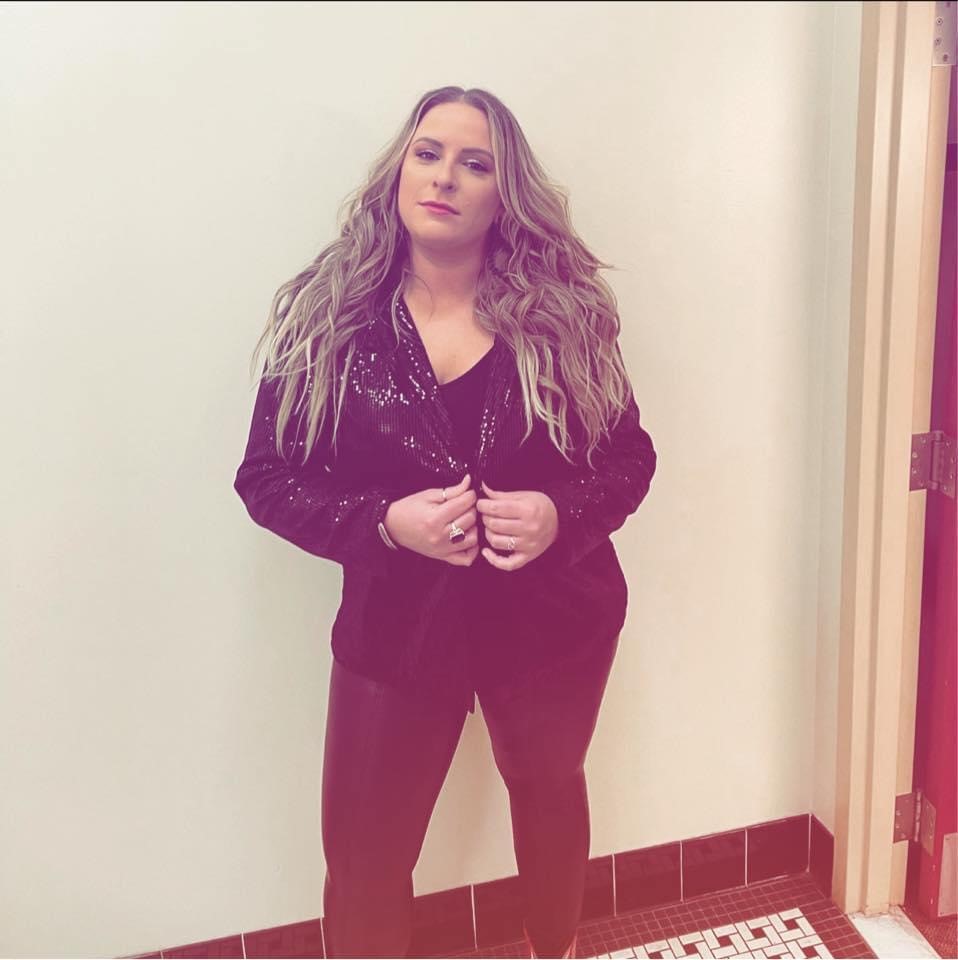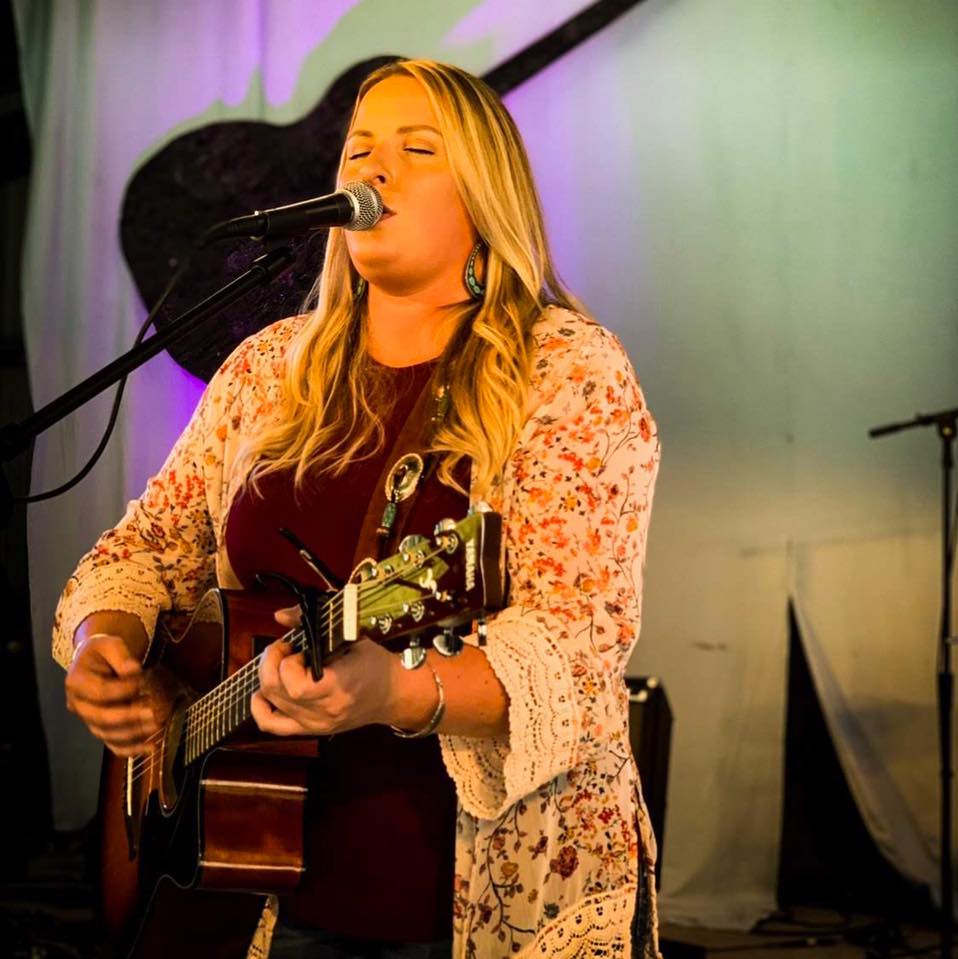We caught up with the brilliant and insightful Lindsay Cornwell a few weeks ago and have shared our conversation below.
Alright, Lindsay thanks for taking the time to share your stories and insights with us today. How did you learn to do what you do? Knowing what you know now, what could you have done to speed up your learning process? What skills do you think were most essential? What obstacles stood in the way of learning more?
I learned how to do what I do through a combination of personal experiences, formal lessons, and self-discipline. Growing up, things were difficult at times—my parents split up, and I found myself navigating an unhealthy, toxic environment while going back and forth between homes. Music became a positive outlet, a way to express myself and escape the stress around me.
I had always wanted to learn guitar, and though we couldn’t afford lessons, I was fortunate to meet Berni McMahon, a kind-hearted instructor who gave me free lessons. Guitar became something constructive I could pour myself into, allowing me to channel my emotions into something creative and positive.
Looking back, I realize that the most essential skill in learning to play the guitar—and in life, really—was patience. It’s easy to want quick results, but mastering something takes time. Slowing down to truly understand each note and chord allowed me to improve steadily. In terms of speeding up the learning process, if I had been more diligent in my practice early on, I might have progressed faster. Consistency is key, and the only real obstacle I faced was myself—if I didn’t practice enough or put in the effort, my progress would stall.
But the experience taught me valuable lessons about perseverance and how important it is to commit to something you care about, especially during tough times. Playing guitar gave me the chance to express feelings I couldn’t always put into words, and it helped shape who I am today.

Great, appreciate you sharing that with us. Before we ask you to share more of your insights, can you take a moment to introduce yourself and how you got to where you are today to our readers.
I’m Lindsay Anne, and I’m a singer-songwriter who performs locally in Berkshire County, Massachusetts on weekends. I’ve been playing guitar since I was 8 years old, and music has always been a meaningful part of my life. Over the years, I’ve written and released my own music, and I currently have nine songs available online under the artist name “Lindsay Anne.” Each of these songs tells a story, capturing different experiences and moments from my life.
My music is a reflection of my journey—personal, authentic, and drawn from real-life experiences. What sets me apart is my commitment to staying true to myself and my sound. I don’t aim to replicate anyone else’s music; I put my own twist on things and ensure that my songs carry the essence of who I am and what I’ve been through. This approach has allowed me to create music that’s honest and relatable, and I think that resonates with people who hear it.
I’m incredibly proud of continuing this journey, even though I’m not a full-time musician. Balancing music with my professional career has been a challenge, but it’s something I love, and I’ve never given up on my passion for playing guitar and singing. It’s therapeutic for me, and it inspires me in so many aspects of my life, both creatively and professionally.
The gigs I play on weekends and the more intimate shows I perform are my favorite opportunities to share my story. In those moments, I get to talk about the inspiration behind my songs, connect with my audience, and create a genuine connection through my music. For those who follow my work or are just discovering me, I want them to know that my music is about real-life experiences, staying authentic, and sharing something meaningful with others. It’s more than just songs—it’s about connection, healing, and expression.

For you, what’s the most rewarding aspect of being a creative?
For me, the most rewarding aspect of being an artist is the ability to connect with people on a deep, emotional level through my music. There’s something incredibly fulfilling about creating something personal—whether it’s a song or a performance—and seeing how it resonates with others. When someone tells me that one of my songs helped them through a tough time or that they relate to the story behind it, that’s the most meaningful feedback I could ever receive.
Music, for me, is a way to express emotions and experiences that might be difficult to put into words otherwise. It’s therapeutic and allows me to process life in a way that feels honest and real. Knowing that my music can do the same for someone else, providing comfort, joy, or even just a moment of connection, is incredibly rewarding.
Another aspect I love is the creative freedom that comes with being an artist. There are no limits to how I can express myself, and that sense of exploration keeps things exciting and fresh. Whether it’s writing a new song, trying out a different sound, or performing in a new setting, I get to constantly grow and evolve, which is a beautiful part of the journey.
Ultimately, the reward comes from knowing that I’m staying true to myself and creating something that can touch others’ lives in a meaningful way. That’s what keeps me inspired to continue making music.

How can we best help foster a strong, supportive environment for artists and creatives?
In my view, society can best support artists and creatives by first acknowledging the essential role that art plays in shaping culture, promoting mental health, and enriching communities. It’s crucial to actively cultivate an environment that nurtures creativity in meaningful ways.
One of the biggest challenges artists face is financial insecurity. Offering more grants, funding opportunities, and sponsorships can help artists focus on their craft without constantly worrying about how to make a living. Governments, organizations, and private entities could prioritize arts funding, especially for emerging talents who need support to get their work out into the world.
Providing accessible and affordable spaces for artists to create, collaborate, and showcase their work is another important step. Artists often need studios, galleries, or performance venues where they can connect with audiences, and these spaces can be prohibitively expensive. Investing in cultural hubs or developing programs that make these spaces more attainable can go a long way in fostering a thriving creative community.
Arts education is another cornerstone of a vibrant artistic ecosystem. By integrating the arts into school curricula and providing sufficient resources to support music, visual arts, theater, and creative writing programs, society can inspire future generations of creatives. Encouraging artistic expression at a young age helps foster creativity as a lifelong pursuit and instills an appreciation for the arts across the broader public.
Additionally, society should celebrate and promote local artists. Whether through festivals, media spotlights, or collaborations with local businesses, elevating local talent helps artists gain recognition and fosters a sense of community around the arts. Public art initiatives like murals, live performances, and cultural festivals also contribute to this effort by making art more visible and accessible to everyone.
Collaboration and networking are vital for a healthy creative ecosystem. Providing platforms or opportunities where artists can connect, share ideas, and work together helps strengthen the entire artistic community. Whether through online platforms or local networking events, creating spaces for artists to engage with one another leads to richer, more diverse creative output.
Lastly, supporting the mental health and well-being of artists is essential. The creative process can be emotionally demanding, and offering mental health resources or wellness programs tailored to the needs of creatives would allow artists to navigate the unique pressures of their work. By fostering an environment where artists feel supported, society can help creativity flourish, benefiting everyone in the process.
Contact Info:
- Instagram: https://www.instagram.com/lindsayanneacousticmusic/
- Facebook: https://www.facebook.com/lindsayanneacousticmusic/
- Other: https://music.apple.com/us/artist/lindsay-anne/1539573628
https://open.spotify.com/artist/3oksN1Ej3SvJnK0W8w5aRe





